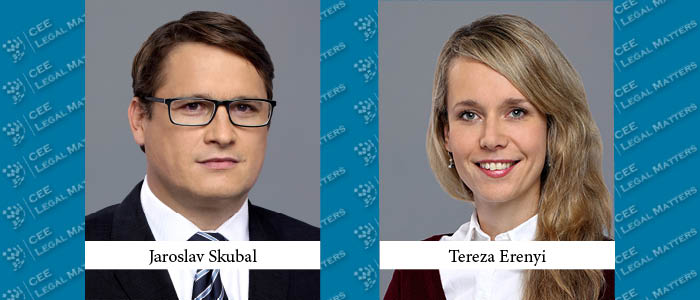On September 12, 2023, the Czech Parliament adopted an amendment to the Labor Code, which will become effective already from October 1, 2023 (unfortunately, employers will have very limited time to prepare for the new regulation). The main purpose of the amendment is to implement the European directives on the work-life balance of parents and carers (No. 2019/1158) and on transparent and predictable working conditions (No. 2019/1152) which were to be implemented by member states in August 2022. But there are further changes that should address problems in the daily operation of employers.
The following areas may be key for employers:
Work from Home
The COVID-19 pandemic demonstrated the importance of addressing the absence of regulations relating to working from home. Based on the amendment, a written agreement between the employer and an employee is necessary for the employee to be able to work from home. There are no explicit legal criteria, thus the content of the agreement is up to the parties’ negotiations. Such an agreement may be terminated by either party by giving 15 days’ notice unless it is specifically agreed that termination is not allowed (this may be important, e.g., for employers who do not have a standard workplace for all employees). The amendment specifically provides for three options of how the costs incurred by employees who work from home may be reimbursed by employers. The first option is to agree on an hourly lump sum that will be determined by the Ministry of Labor (an hourly payment of around EUR 0.2 is expected). The second option is to agree that no costs will be reimbursed at all – this is an option which will be used namely if working from home is a benefit. If no agreement is reached, employees will be entitled to reimbursement of claimed and proven costs (however, utility costs can be difficult for employees to prove).
Stricter Regulation of “Zero-Hours” Agreements
The Czech Labor Code recognizes two categories of agreements that can be signed for a limited but unguaranteed extent of work. The first one is an agreement to complete a job that must not exceed 300 hours per year and the second one is an agreement to perform work that does not exceed 1,040 hours per year (an average of 20 hours per week). Currently, these agreements have a lot of flexibility compared to regular employment contracts (no shift schedule, no guaranteed extent of work, simple notice termination with no severance pay, etc.).
From the employers’ point of view, the amendment will downgrade the regulation as employees will be entitled to paid annual leave (the minimum leave is 24/80 hours if all 300/1,040 hours have been worked). The new right to leave will apply from January 1, 2024. In addition, these agreements should be subject to all working time restrictions (namely as regards the length of shifts and rest periods) and a written shift schedule will be mandatory (thankfully, only for the next shift or for some shorter period, such as the coming week).
Important Document Execution and Distribution via Electronic Means
The long-term absence of any regulation of the electronic execution and distribution of important employment documents is another key issue. As a result of the amendment, employment contracts, zero-hours agreements, as well as all their contractual modifications and/or terminations may be entered into via email. However, the employee must initially agree to the electronic approach and provide the employer with their private email address. Thanks to the amendment, the employer will also be able to send unilateral notices of termination by email (currently, this is not possible), provided that the employee gives their prior consent.
Informational Duty
The amendment imposes a greater duty on employers to provide written information about rights and obligations to employees (including employees who work under zero-hours agreements). As a result, all employees must be informed about a probation period (if agreed), the procedure relating to termination of employment, the extent of overtime work, the expected extent of work in case of zero-hours agreements, etc. Employers will thus be obliged to review their templates in order to get them in line with the new regulation. Based on the informational duty, employers will also be required to provide employees with a written justification for some of their decisions, such as refusing to let a carer work part-time or terminating a zero-hours arrangement.
By Jaroslav Skubal, Partner, and Tereza Erenyi, Senior Associate, PRK Partners
This article was originally published in Issue 10.9 of the CEE Legal Matters Magazine. If you would like to receive a hard copy of the magazine, you can subscribe here.


